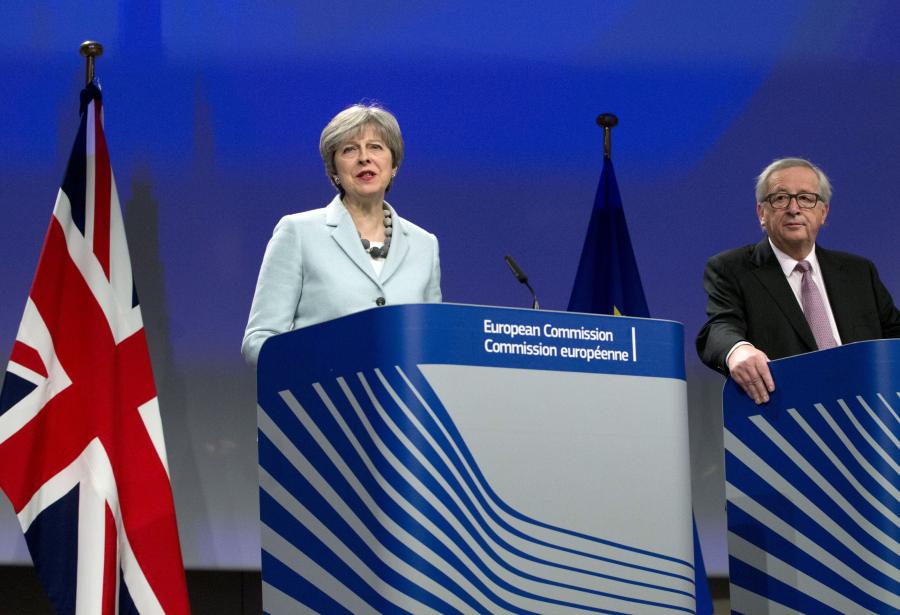
There will be no "hard border" in Ireland as sufficient progress is made in Brexit talks, Prime Minister Theresa May and European Commission President Jean-Claude Juncker have confirmed.
Following tough negotiations, the PM has guaranteed that Northern Ireland will have regulatory alignment with the Republic of Ireland, and no obstacles to trade will emerge.
The joint UK and EU report published on Friday (8 December) states that the British government is seeking a trade deal with the European Union that makes any sort of hard border with Ireland unnecessary.
“Should this not be possible, the United Kingdom will propose specific solutions to address the unique circumstances of the island of Ireland,” it adds.
“In the absence of agreed solutions, the United Kingdom will maintain full alignment with those rules of the internal market and the customs union which, now or in the future, support north-south cooperation, the all-island economy and the protection of the 1998 agreement...
“The United Kingdom will ensure that no new regulatory barriers develop between Northern Ireland and the rest of the United Kingdom, unless, consistent with the 1998 agreement, the Northern Ireland executive and assembly agree that distinct arrangements are appropriate for Northern Ireland.
“In all circumstances, the United Kingdom will continue to ensure the same unfettered access for Northern Ireland’s businesses to the whole of the United Kingdom internal market.”
'Very good day'
An Irish government spokesman said it was “a very good day for Ireland, north and south”.
He said: “On the border, we have achieved the most important commitment. We always welcomed the UK aspiration to avoid a hard border, but we held out this time for detail on how that could be achieved.
“And for the first time now we have that, in terms of the stated commitment to maintain full alignment with those rules of the internal market and customs union which, now or in the future, support north-south cooperation, the all-island economy and the protection of the Good Friday agreement.”
For the farming industry, a hard border between Northern Ireland and the Republic would have severely impacted agri-trade.
The Ulster Farmers’ Union (UFU) says the movement of goods and access to labour across the border after Brexit were key concerns for farmers and dairy processors.
'Strong links'
UFU dairy chairman William Irvine said Northern Ireland’s unique situation and the complexities of what will be a land border between the UK and EU are well recognised.
“A large number of dairy farmers here are members of co-ops in the South. Clearly, there are strong links between farmers here and processors south of the border, and indeed vice versa,” Mr Irvine explained.
“This applies to other sectors as well as dairy, and we were encouraged that the will seems to exist in Brussels for a soft border.”
Indeed, nearly 40 per cent of the UK’s beef exports go to Republic, while 50 per cent of Irish beef exports are marketed in the UK.
In terms of sheep, the fact that over 40 per cent of Northern Ireland’s lambs are processed in the Republic of Ireland and 90 per cent of the UK’s lamb exports are destined for the European market show that there is a lot hanging on achieving a progressive free trade arrangement.
